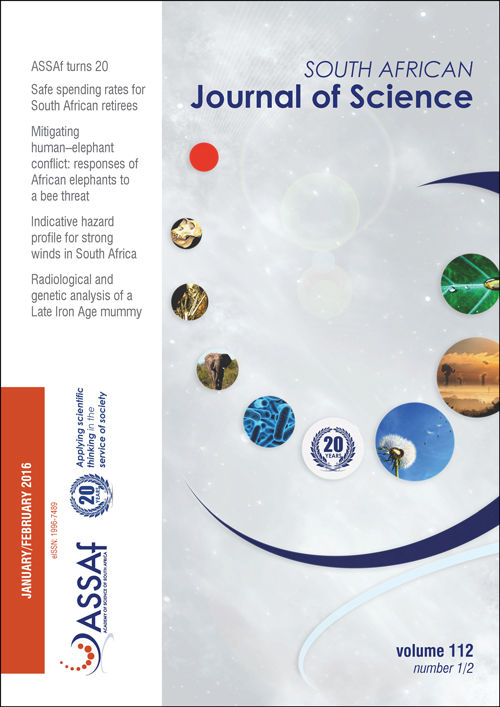Visitors’ views of human origins after visiting the Cradle of Humankind World Heritage Site
DOI:
https://doi.org/10.17159/sajs.2016/20150210Keywords:
scientific evidence, human origins, ancestor, evolution, palaeontologyAbstract
The Cradle of Humankind World Heritage Site, west of Johannesburg, was designated in 1999 because of its importance as a locality where numerous hominid fossils have been discovered since the 1930s. In this article, responses to questions from a survey of more than 800 adult visitors to the Cradle of Humankind visitor centres are analysed, covering their understanding of the concept of the ‘cradle’ and their views on human evolution. Findings indicated that 63% of the respondents conceptualised the cradle as the origin or birthplace of humankind, and a similar proportion thought that nowhere else could be called the Cradle of Humankind (77% of people of South African nationality thought this). Nearly 60% of respondents accepted that humans evolved from an ape-like ancestor, while 25% disagreed. South Africans were less likely to accept human evolution than their international counterparts. The great majority of participants who accepted human evolution based their agreement on various forms of evidence and their knowledge of evolution. A religious foundation was used for their rationale by 60% of those who rejected evolution, with 33% citing evidence for their rejection. The implications of the findings are discussed in the light of public awareness and human origins.
Published
Issue
Section
License

This work is licensed under a Creative Commons Attribution 4.0 International License.

All articles are published under a Creative Commons Attribution 4.0 International Licence
Copyright is retained by the authors. Readers are welcome to reproduce, share and adapt the content without permission provided the source is attributed.
Disclaimer: The publisher and editors accept no responsibility for statements made by the authors
How to Cite
- Abstract 550
- PDF 1727
- EPUB 213
- XML 204












.png)